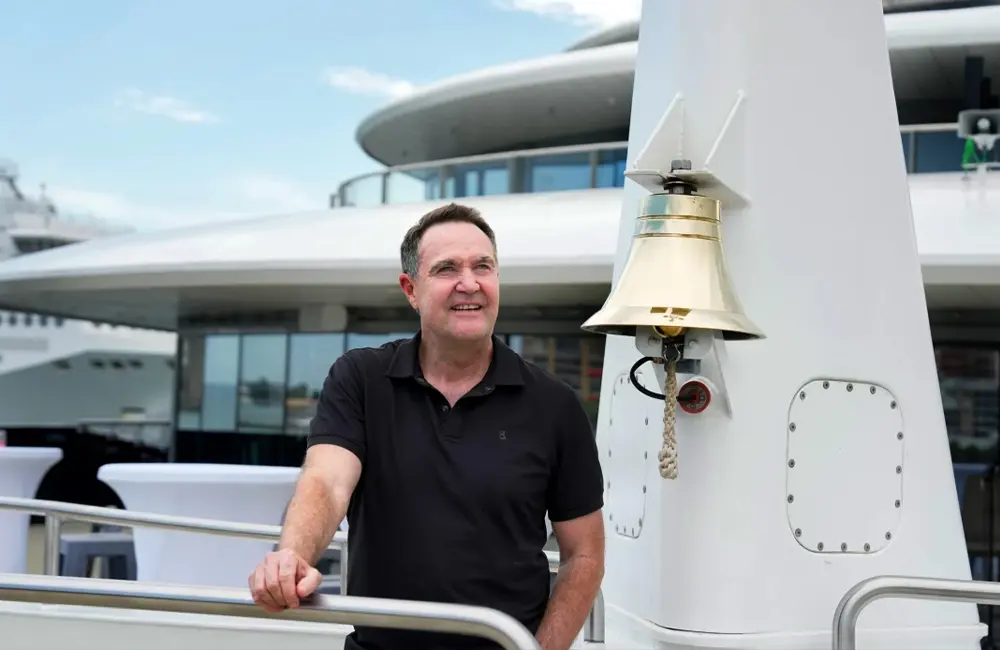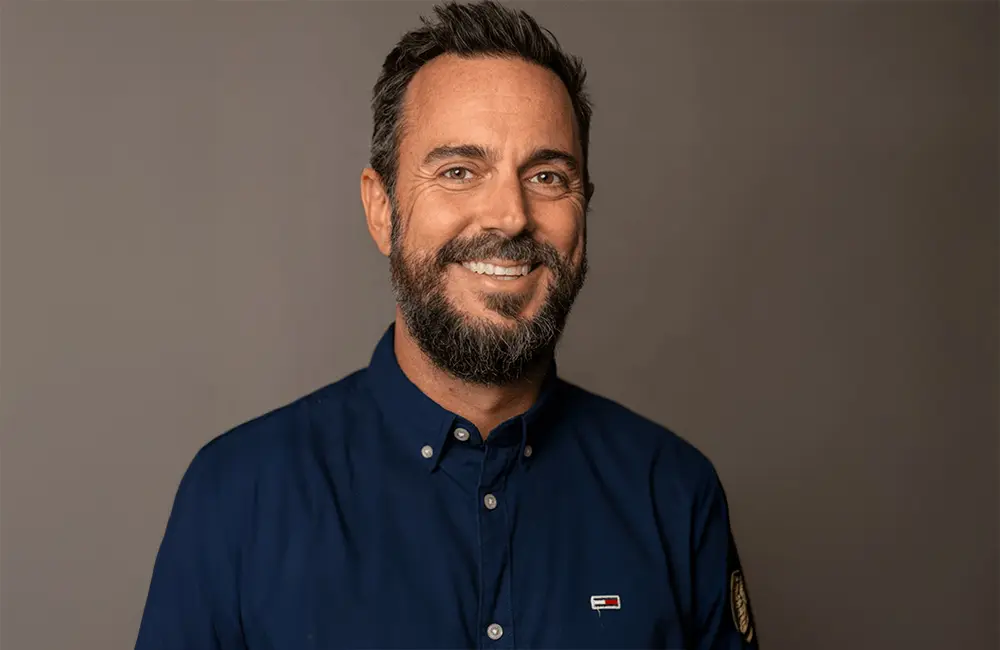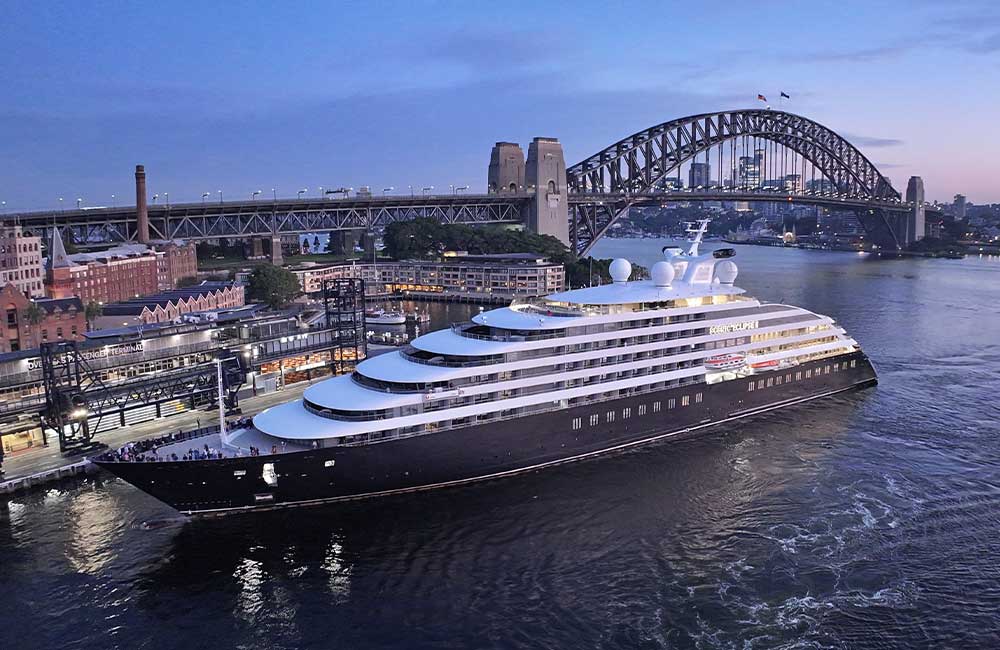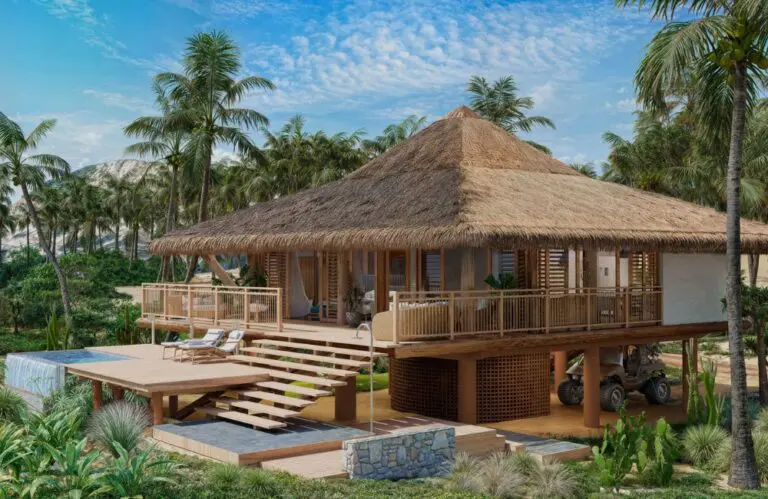The Scenic Group has released its 2024 Impact Report, which highlights progress and transparency in luxury cruising and touring, including social equity and freshwater self-sufficiency under its “Cherish the Planet” initiative.
The Scenic Group Impact Report for 2024 outlines tangible reductions in environmental impact across the group’s river and ocean fleets.
Plastic waste fell by 27 per cent across ocean operations and a massive 40 per cent across its river operations versus 2023, supported by practical changes such as refillable toiletry dispensers. Both Scenic Eclipse and Emerald Azzurra alone achieved notable reductions in plastic waste, 28 per cent and 11 per cent, respectively.
While overall food waste increased by 53 per cent across ocean operations in 2024, driven in part by a 42 per cent rise in guest numbers, the group also reported an 8 per cent increase in food waste intensity per guest, saying it is “committed to taking a leadership role and driving waste management and data collection improvements in an area where regulations and enforcement are still limited.”
Scenic also noted that around 120 million tons of bananas are produced worldwide annually. Most of the waste produced from banana consumption comes from the peel, which makes up 30-40 per cent of the weight. Banana peel waste contains carbon-rich organic compounds that can take up to two years to decompose and biodegrade.
In response, Scenic kitchen teams are exploring low-waste recipes and creative techniques, including a new “whole banana” dessert crafted using both the fruit and its peel, now featured on the Chef’s Table menu aboard Scenic Eclipse. It’s the seemingly minor things that often make the most significant difference.
Reduced water usage metrics were equally noteworthy. Ocean vessels produced nearly 80,000 cubic metres of freshwater onboard in 2024, thanks to converting seawater via “reverse osmosis”, leading to a reduction in strain on port resources. On the rivers, water consumption dropped by 18 per cent compared to the previous year. Across the fleet, 92 per cent of water was safely treated and returned to the environment.
“The 2024 Impact Report provides a clear picture of the meaningful progress we’ve achieved as we continue to evolve as an eco-conscious and socially responsible travel leader,” said Glen Moroney, Founder and Chairman of Scenic Group. “Whether it’s reducing plastic waste, expanding access to clean water or strengthening our commitment to ethical sourcing, we’re shaping the future for luxury cruising.”
What’s the group doing about emissions?

Greenhouse gas emissions increased in total, up 10.6 per cent from 2023 as a result of fleet expansion. However, carbon intensity per customer night declined across all operations. Ocean cruising saw a drop from 0.106 to 0.072 tCO2e per guest night since 2019, with river and land journeys showing similar downward trends.
The company has begun engaging with the European Union Emissions Trading Scheme (EU ETS), surrendering over 11,000 tonnes of CO2 credits in 2024. This includes voluntary offsets via verified blue carbon and agroforestry projects in Pakistan and Nicaragua.
A newly appointed Technical Manager for Sustainability & Energy will support the group’s GHG reduction strategy, which met or exceeded Scope 1 targets in 2024. The next step: aligning fully with the Paris Agreement’s 1.5°C climate pathway.
What community partnerships were supported?
On the ground, the company continued to invest in communities through strategic partnerships. In Egypt, the group expanded its support for social enterprises such as the Al Qalam Foundation and Bayt Yakan. Guest donations help fund workshops in Arabic calligraphy, woodwork, and cultural heritage preservation in historic Cairo.
In Vietnam’s Tra Bong District, a kindergarten became the latest recipient of a clean water filtration system, delivering safe drinking water to over 200 students and teachers. This initiative forms part of a long-term partnership with VinaCapital Foundation focused on health and education outcomes.
What steps has the company taken on ethical sourcing?
Sustainable procurement is evolving, with new ISO 20400-aligned guidelines now embedded across supplier relationships. These guidelines prioritise local sourcing, labour rights and waste minimisation. A standout example is the “2nd Life Bottle” project, where stainless steel bottles collected from guests in Vietnam and Cambodia are sanitised and redistributed to schools without access to clean drinking water.
The brand is also deepening ties with regional producers, including its collaboration with Samai, Cambodia’s first premium rum distillery, and Pour un Sourire d’Enfant (which translates to “For a Child’s Smile”), a social enterprise offering vocational training to at-risk youth in Cambodia.
How is the group improving equity and inclusion?
The 2024 report shows that women now occupy 51 per cent of management roles across the business. Meanwhile, the gender pay gap has narrowed to 11.7 per cent, down from 15.6 per cent the previous year. Although not a full equal pay audit, the data covering more than half of the group’s reporting entities signals progress.
The group also shared workforce data showing that 50 per cent of employees are aged between 30 and 50. Staff retention rates increased across key markets, with a new focus on leadership development and wellbeing.
How has the group evolved in its reporting?

Now in its second year of formal sustainability reporting, the group has expanded significantly on the foundations laid in its inaugural 2023 Impact Report. The latest edition not only deepens the data set but also reflects stronger alignment with emerging global ESG frameworks, including the European Sustainability Reporting Standards (ESRS). Scenic says a full materiality assessment is planned for 2025 to guide future disclosure.
“This year, we focused on what the data reveals: where we’re improving efficiency and how our commitment to responsible practices is making a difference for guests and the destinations we serve,” said Phil Jordan, Director of Sustainability at Scenic Group. “We remain focused on driving long-term impact through innovation, strategic partnerships and guest experiences that reflect a deep respect for the planet.”
To read the full 65-page 2024 Scenic Group Impact Report, click here.
KARRYON UNPACKS: Scenic Group’s latest Impact Report shows a luxury cruise and touring brand embedding sustainability into daily operations, from GHG targets and water recycling to community-led excursions and inclusive hiring. As the travel sector shifts toward more accountability and performance-based ESG, this report offers a clear framework for how impact and luxury can co-exist.






